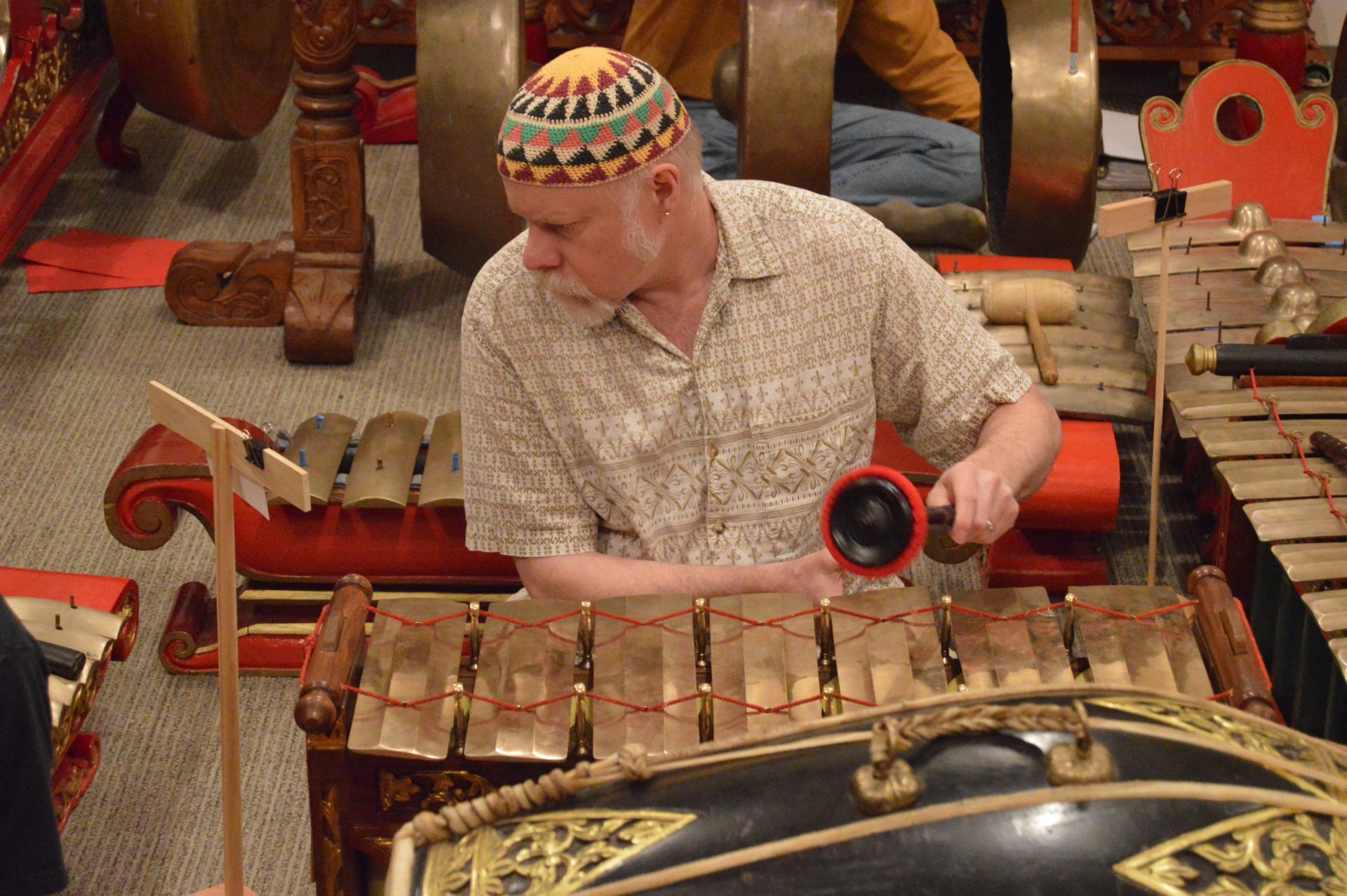
LIKE MOST OF Lewis & Clark’s departments, the Music Department encompasses a range of diverse classes. Among them is a class focused on the gamelan. Hailing from Indonesia, specifically Java and Bali, gamelan is an orchestra-like ensemble that incorporates a range of tuned percussion instruments, varying from hanging gongs to xylophone-like instruments.
Gamelan is different from other ensembles in that the instruments can only be played together. This is because they are inconvenient to transport and are tuned specifically to be played with the other instruments in the ensemble. Gamelan also utilizes two scales not commonly found in western-style music: Pelog and Slendro. The former is a seven-note scale while the latter is a five-note scale. These two scales must be used because gamelan instruments vary in their number of keys.
LC has possessed its own gamelan set since the late ’70s. At that time, Vincent McDermott, a classically trained composer and ethnomusicologist, was the professor of world music. A student of McDermott’s was enamored with the gamelan after learning about it in his class. Years later, she donated the money to buy the school its own set from central Java.
“Part of her commitment and desire for donating that money was that there would always be a community element to the ensemble. There has always been a student group and a group where the community is involved,” Mindy Johnston, the current gamelan professor, said.
Johnston has been involved with the gamelan ensemble since 1993, when she began her own studies at LC. During her sophomore year, she studied abroad in Indonesia and after graduating, was awarded the Darmasiswa Scholarship to study traditional Javanese music at a university in Java. In 2007, the former Indonesian Music professor at LC left, and Johnston was his natural replacement.
Johnston also teaches at PSU, where a gamelan was donated in 2013. At PSU, the community and student groups rehearse together, whereas LC separates the two. “With the community group, the commitment can be too much when you are still a student, although we have had students who have been very involved and participated in the performances,” Johnston said.
Performance locations vary from venues such as the farmer’s market to Evans Auditorium. Gamelan makes an annual appearance at LC’s world music concert, the one campus event that brings all of the world music classes together. This includes African mriba and marimba, Ghanaian rhythms and dance, Hindustani singing, sitar, tabla and flamenco guitar. However, Johnston prefers “funky” venues, like Hipbone Studio where the ensemble is performing in late November.
Being a member of the community gamelan ensemble is a highly sought-after position; there has been a waitlist for a number of years. This is because members tend to stay in the group for typically 10 years, sometimes 20. There are currently 15 members, three of whom are Lewis and Clark alumni. The ensemble brings together a broad range of age groups, allowing it to fully represent the community.
“I was a Reed College student and I took Balinese dance there,” Jesyca Hernstadt, a newer addition to the group, said. “We did a workshop in Javanese gamelan, so, after I graduated, I came back and joined the group.”
For students, gamelan can be a form of meditation. Since there is no way to take instruments home, all that is required of them is to show up to class. Students do not need to have any previous experience with music, so the class typically has students from all different levels of musical experience. For this reason, gamelan is regarded in the music world as extremely accessible.
“The beautiful thing about gamelan is that it is instantly gratifying,” Julia Banzi, the instructor of Flamenco Guitar and Folk Guitar, said. “It is like being inside an instrument. You feel it in your bones and everywhere.”
Subscribe to the Mossy Log Newsletter
Stay up to date with the goings-on at Lewis & Clark! Get the top stories or your favorite section delivered to your inbox whenever we release a new issue.

Leave a Reply